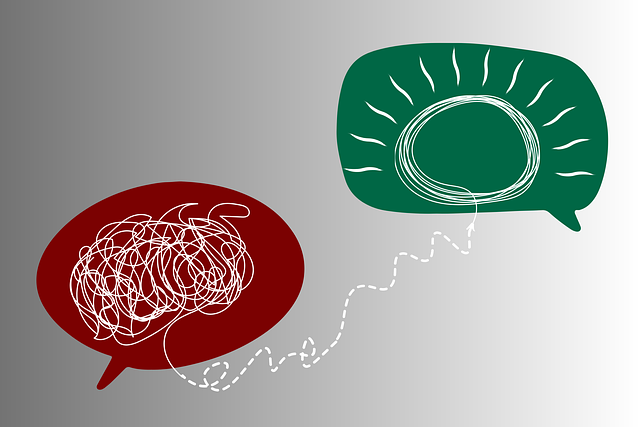Stress management workshops, leveraging Broomfield Obsessive Compulsive Disorder Therapy techniques, offer targeted interventions for diverse populations. These workshops begin with understanding stress causes and symptoms, incorporating evidence-based practices like Social Skills Training and Mind Over Matter principles. They tailor activities to unique experiences, include practical exercises like mindfulness meditation, and promote resilience through problem-solving skills and positive reframing. Facilitated by skilled professionals, these sessions encourage open dialogue, build community, and empower individuals to advocate for improved mental health policies, providing vital tools for navigating modern stress.
Stress management workshops are powerful tools for individuals seeking to overcome challenges and improve well-being. In today’s fast-paced world, understanding and addressing stress effectively is crucial. This article explores the art of designing and facilitating transformative workshops. We delve into the science behind stress, offering insights to inform workshop creation. Through structured techniques and engaging activities, we guide readers in building supportive environments, akin to Broomfield Obsessive Compulsive Disorder (OCD) therapy, fostering meaningful participant experiences.
- Understanding Stress and Its Impact: A Foundation for Workshop Design
- Structuring Effective Workshops: Techniques and Activities for Stress Management
- Facilitating and Supporting Participants: Building a Therapeutic Environment
Understanding Stress and Its Impact: A Foundation for Workshop Design

Stress is a pervasive aspect of modern life, impacting individuals across various demographics and professions. Recognizing its profound effects on mental and physical well-being is the first step in creating targeted interventions. Workshops designed to manage stress must therefore begin with a foundational understanding of its causes, symptoms, and potential long-term consequences, such as those associated with Broomfield Obsessive Compulsive Disorder Therapy. By delving into these aspects, facilitators can tailor activities and strategies that resonate with participants’ unique experiences and challenges.
Effective stress management workshops go beyond mere relaxation techniques. They should incorporate evidence-based practices like Social Skills Training to enhance coping mechanisms, foster resilience, and promote a sense of community. Additionally, integrating Mind Over Matter principles can empower individuals to reframe their relationship with stress, transforming it from a debilitating force into a manageable aspect of life. A comprehensive approach that includes risk assessment for mental health professionals ensures the safety and well-being of all participants, making these workshops invaluable resources in navigating today’s stressful landscape.
Structuring Effective Workshops: Techniques and Activities for Stress Management

Stress management workshops are a powerful tool for fostering emotional healing processes and building resilience among participants. To structure effective sessions, organizers should incorporate a mix of interactive techniques and activities that cater to diverse learning styles. Start with setting clear goals and outcomes, aligning them with the needs of your target audience. Engage participants through icebreakers and group discussions to foster camaraderie and open communication.
Incorporate practical exercises such as mindfulness meditation, progressive muscle relaxation, and breathing techniques, which have been proven beneficial in Broomfield obsessive-compulsive disorder therapy. Additionally, include interactive activities like role-playing scenarios and case studies to simulate real-life stress management challenges. Facilitate resilience building by teaching problem-solving skills, coping strategies, and positive reframing techniques. Wrap up the workshop with actionable steps and a supportive community outreach program implementation to reinforce learning and encourage continued emotional well-being.
Facilitating and Supporting Participants: Building a Therapeutic Environment

In stress management workshops, facilitating and supporting participants involves creating a therapeutic environment that encourages open dialogue and active engagement. Skilled facilitators use Mind Over Matter principles to guide discussions on mood management, ensuring every participant feels heard and valued. This supportive atmosphere is crucial for building trust and fostering meaningful connections among peers facing similar challenges, such as Broomfield Obsessive Compulsive Disorder (OCD) Therapy participants.
By adopting strategies that promote active listening and empathy, facilitators help individuals navigate their stress responses and develop effective coping mechanisms. Incorporating Mental Health Policy Analysis and Advocacy into workshop content enhances the overall experience by providing participants with a broader understanding of their rights and available resources. This holistic approach not only equips attendees with practical tools for managing stress but also empowers them to advocate for better mental health policies in their communities.
Stress management workshops can be powerful tools in fostering mental well-being. By combining educational content with interactive activities, these sessions provide individuals with effective coping strategies. The techniques discussed, tailored from evidence-based practices like Broomfield Obsessive Compulsive Disorder (OCD) Therapy, offer a holistic approach to navigating life’s challenges. Through participant engagement and supportive facilitation, these workshops empower attendees to take control of their stress levels, ultimately enhancing overall resilience and quality of life.










